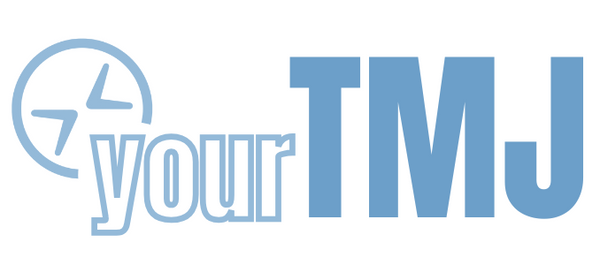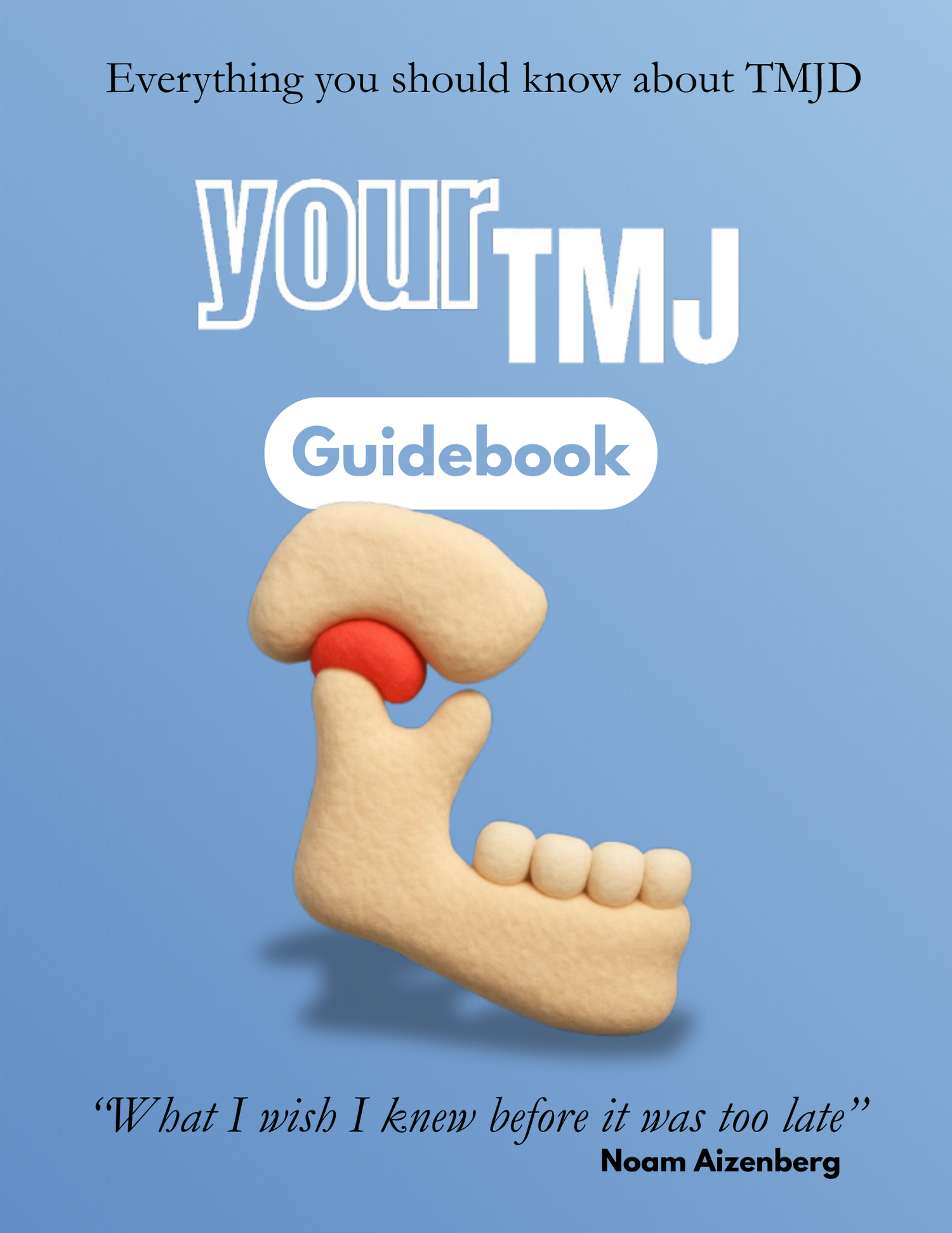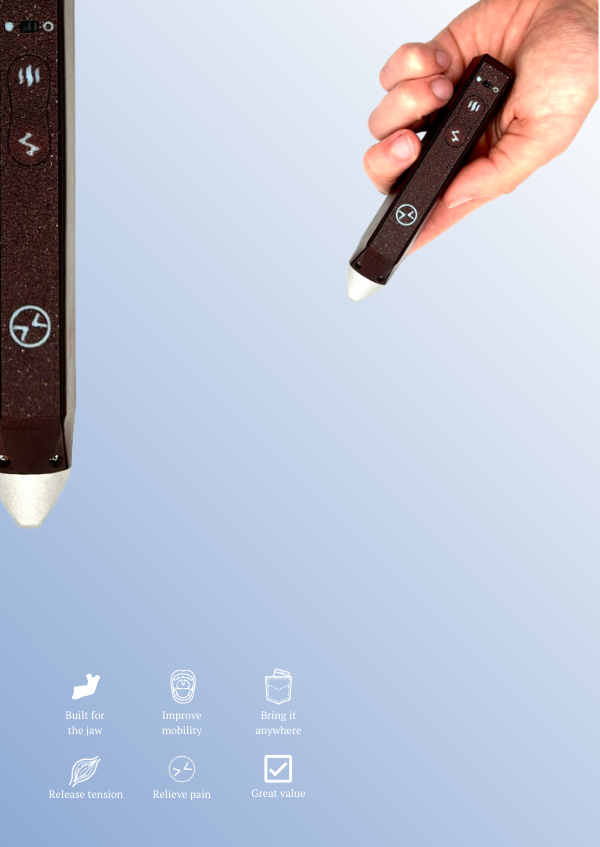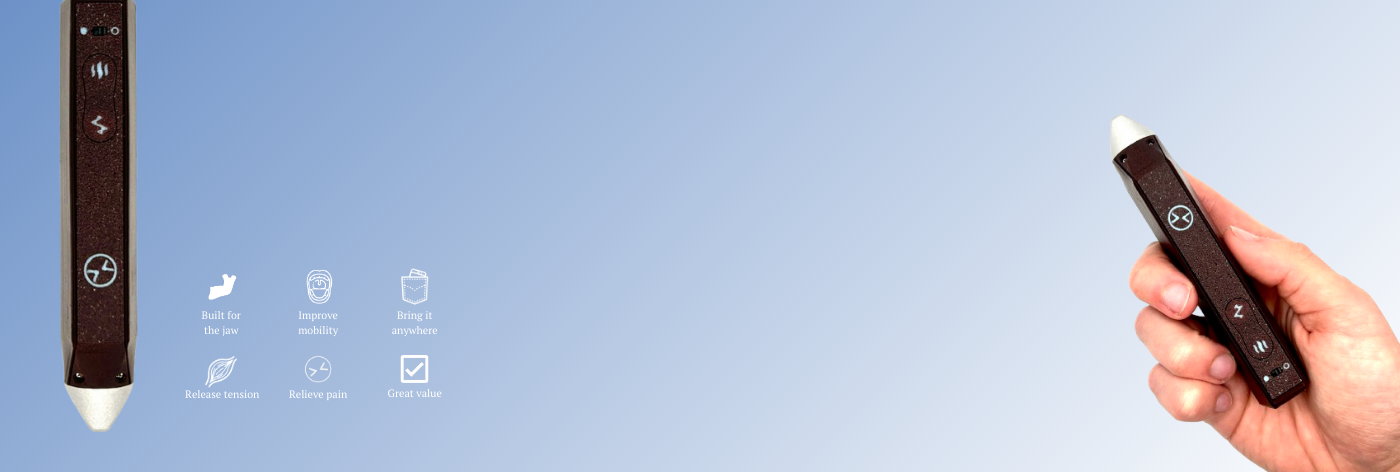Is TMJ Caused by Stress?
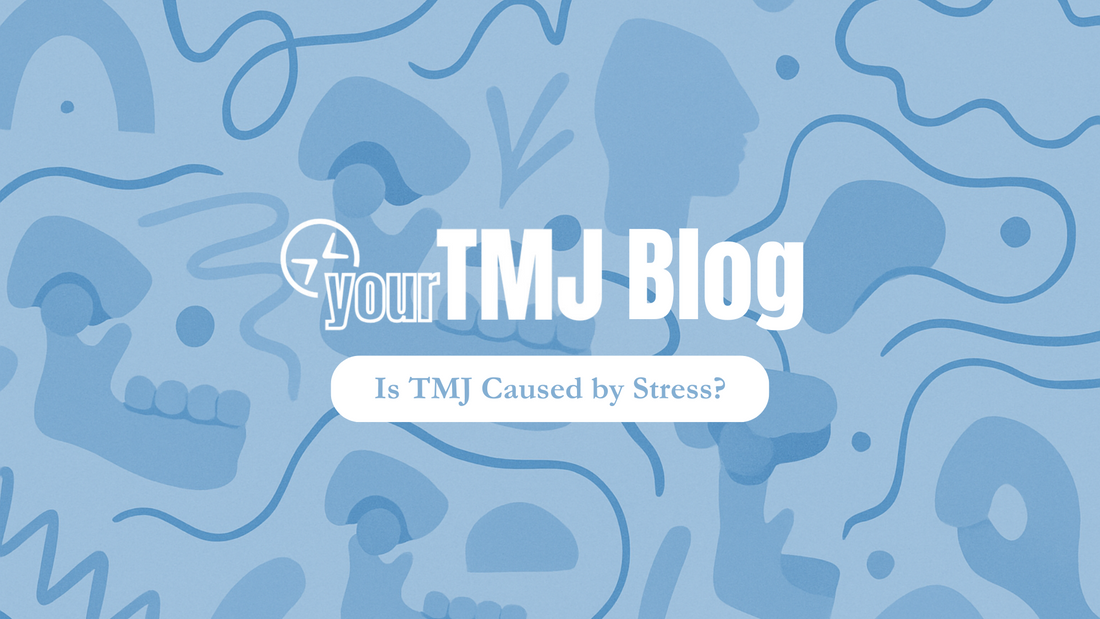
TMJ is often said to be caused by stress. But the truth is, that’s not exactly right. Stress doesn’t cause TMJ Disorder. What it can do is make certain symptoms worse, or trigger certain habits that can lead to dysfunction over time. The disorder itself is a structural and muscular problem. So if you’re dealing with TMJ Disorder, and you’ve been told to just "lower your stress" as your main treatment plan, it’s time to look a little deeper.
In this blog, we’ll walk through the connection between stress and TMJ Disorder—where that link actually comes from, what role it plays, and where people go wrong in assuming stress is the root cause. Because TMJ isn’t simple. It takes more than a 5 minute read to get to the bottom of it and how to treat it. That’s why at the end of this post, you’ll find a free 76-page guidebook written specifically for people looking to finally understand their TMJ issues. It explains the full system, what’s going wrong under the surface, and things you can start doing TODAY to start fixing it.
How stress connects to TMJ symptoms
Let’s get this out of the way: stress doesn’t directly cause joint damage. It doesn’t pull your disc out of place or wear down cartilage. But what it can do is lead to habits that make your TMJ system unstable. The biggest culprit? Clenching.
Daytime clenching (also called awake bruxism) is heavily correlated with stress. And it’s a problem because it loads your TMJ with constant compressive and shearing forces. Especially if you clench with full molar-on-molar contact, you’re jamming your condyle into the back of the joint. This may in turn compress sensitive and nerve dense retrodiscal tissue, which can lead to pain. It can cause inflammation. And over time may even push the articular disc out of place. If it slips too far, it starts clicking. If it gets stuck, you can get a closed lock. And if you continue to overload the joint with a displaced disc, that's where you start running into risk of permanent joint damage and arthritis.
Clenching also overworks your jaw muscles—especially the masseter, temporalis, and part of the lateral pterygoid. These are the same muscles that work when you shut your jaw. When they’re constantly firing, they get stronger, stiffer, and more prone to painful muscle spasms. These trigger points can refer pain throughout your face, jaw, temples, and even teeth.
So yes, stress matters. But the answer isn’t just "be less stressed." It’s about recognizing the habits that stress causes and breaking the cycle before they spiral into something worse.
But it’s not just stress...
You should know that clenching doesn’t only come from stress. There are deeper postural and structural reasons people clench. For example, when your jaw is retracted (meaning the condyle is sitting too far back in the joint), it destabilizes the whole system. That instability can trigger muscle tension as your body subconsciously tries to "hold things in place."
That’s also a potential reason for why people clench in their sleep. Nighttime clenching isn’t caused by stress—it can be caused by jaw and airway instability (like airway resistance or sleep apnea). In those cases, no amount of meditation or deep breathing exercises is going to solve the root cause.
What to do if you think stress is making your TMJ worse
If you think stress is making your TMJ worse, the most important thing you can do is break the cycle of habits it triggers. That means:
-
Stop clenching during the day. Keep a small gap between your molars.
-
Use heat to help relax any tense muscles in your jaw or temples.
-
Do self massage to release trigger points.
-
Strengthen the lateral pterygoid to help support better jaw posture.
-
Start doing jaw mobilization exercises every day to improve motion and reduce joint loading.
And here’s one of the best tips I can give you: set a timer to vibrate every 20-30 minutes during the day. For at least 3 weeks. Every time it goes off, check your posture. Is your jaw gently protracted? Are your teeth apart? Tongue suctioned to the roof of your mouth? Head not leaning forward? Over time this will help reset your body’s postural baseline, which is one of the most effective long-term strategies for reducing TMJ symptoms.
Everything above - the hows, whats and whys - are outlined in detail in the free guidebook, including exercises and tools you can start using today.
The bottom line
Stress can absolutely make TMJ Disorder worse. But it’s not usually the root cause - and even if it is, it's a lot easier to fix your daytime clenching habits than magically "just stop stressing". The goal is to build a jaw system that can tolerate stress without falling apart.
Next Steps
If you want to understand TMJ Disorder to its core and find out your next steps for treatment, check out the full guidebook here: https://yourtmj.com/blogs/yourtmj-blog/yourtmj-guidebook-what-is-tmj-and-how-can-you-treat-it
